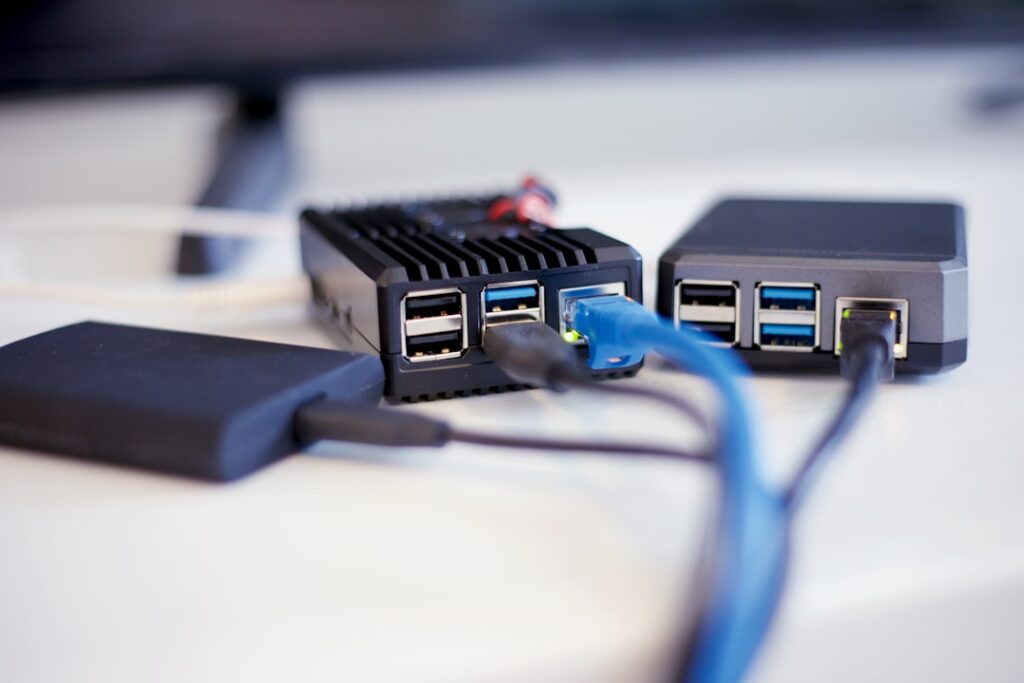In today’s hyper-connected world, everything you do online leaves a trace. For public figures—whether you’re a politician, executive, influencer, athlete, or nonprofit leader—this digital paper trail can turn from a minor inconvenience into a serious threat to your safety, credibility, and peace of mind.
It’s not just your own data at risk. Your family’s online behavior—shared Wi-Fi networks, smart devices, and even innocent social media posts—can open the door to attackers. From leaked home addresses to doxxed relatives, your digital exposure is a growing target for scammers, stalkers, and reputation saboteurs.
This guide from Bison Security Co. explores the most overlooked online privacy protection strategies for public figures and their families. You’ll learn how to shrink your digital footprint, reclaim your privacy, and build digital resilience in an age where data exposure is constant—and dangerous.
If you care about your personal safety, your family’s security, and your professional reputation, these online privacy protection strategies are no longer optional. They’re essential.

Table of Contents
- 1 1. Stop the Oversharing—Every Post Adds Up
- 2 Final Thoughts: Privacy Is Power
- 3 Take Control of Your Digital Safety
1. Stop the Oversharing—Every Post Adds Up
Oversharing isn’t just a social media faux pas—it’s one of the most common pitfalls in online privacy protection strategies. Most privacy breaches don’t start with hacking—they start with breadcrumbs you or your family unknowingly leave behind:
- A birthday photo showing your house number or street name
- A vacation story that confirms you’re out of town (and your home is empty)
- A child’s school award post that reveals their school’s name
- A job announcement that unintentionally reveals internal team structures or vendor relationships
Why it matters:
Attackers, stalkers, and social engineers can piece together your digital footprint with alarming precision. These publicly visible details are often used to:
- Impersonate you or your family members online
- Answer security questions (like birthdates or pet names)
- Launch phishing or spear-phishing campaigns
- Or worse, enable doxxing or in-person threats
For public figures and families alike, personal posts can quickly become tools for exploitation. Applying effective online privacy protection strategies is essential to keep you and your loved ones safe.
What to do:
These online privacy protection strategies can dramatically lower your exposure:
- Audit past posts: Go through your Facebook, Instagram, TikTok, and other platforms. Look for images or captions that reveal names, locations, birthdays, schools, or identifying landmarks.
- Limit location sharing: Never post real-time location data. Wait to share travel content until after you’ve returned home.
- Switch to private: Make personal accounts private and regularly review your follower lists. Remove anyone you don’t know personally.
- Talk to your family: Make social media safety a family rule. Kids and teens especially need to understand how a single post can affect their privacy—and yours.

2. Remove Yourself from Data Broker Sites
Your phone number, home address, past residences, relatives’ names, and even estimated income are likely floating around dozens of data broker websites—without your permission.
These sites, often disguised as “people search” or “background check” tools, scrape public records and online activity to build invasive personal profiles. Protecting yourself from these risks is a key part of effective online privacy protection strategies, as these profiles can be used by more than just marketers—they’re often exploited by scammers, stalkers, and identity thieves.
Why it matters:
Bad actors—from identity thieves and stalkers to political opponents or disgruntled ex-clients—can find your sensitive data in minutes. This puts you and your family at risk of:
- Harassment and doxxing
- Phone spoofing and phishing
- Real-world threats like swatting or physical surveillance
Removing your information from these sites is one of the most critical online privacy protection strategies for public figures and families alike.
What to do:
Implement these online privacy protection strategies to take back control:
- Use an Identity Monitoring service: that actively scans for your name and information across major data broker platforms and helps you remove it—giving you a powerful first line of defense against digital exposure.
- Manually opt out: If you prefer the DIY route, request removal from the top offenders like Whitepages, Spokeo, MyLife, BeenVerified, Intelius, and PeopleFinders. Be aware: each site has its own confusing process, and some will re-list your data later. This list isn’t exhaustive—dozens of smaller data brokers exist, so ongoing monitoring is key to effective online privacy protection strategies.
- Schedule quarterly audits: Removal is not permanent. These sites often re-aggregate your information over time. Make privacy hygiene a routine, not a one-time fix.

3. Secure Your Domains and Usernames
In today’s world, your name is your brand—and protecting it with strong online privacy protection strategies is essential. One of the most powerful assets in your digital presence is your domain and social media handles. If someone else registers a domain with your name or claims your usernames first, they can impersonate you, defraud others, or sabotage your credibility—making proactive domain and account protection a critical part of your online privacy protection strategies.
This isn’t hypothetical. We’ve worked with clients—including politicians, athletes, executives, and creators—who’ve had their reputations damaged by domain squatters and fake profiles posing as them online.
Why it matters:
Unclaimed domains and handles are open invitations for:
- Impersonation and scams targeting your supporters or audience
- Reputation damage from misleading or malicious content
- Legal headaches and costly recovery efforts
As part of your online privacy protection strategies, locking down your name is just as essential as securing your passwords.
What to do:
- Register your domain(s)
- Secure
yourfullname.com, variations, and common misspellings (e.g.,yournme.com,yourname.co,yourname.org). Consider adding country-specific TLDs like.usor.caif relevant.
- Secure
- Claim social media handles—everywhere
- Even if you’re not active on TikTok, Threads, or LinkedIn, claim your username now. This prevents impersonators and gives you flexibility to grow later.
- Monitor for impersonators
- Set up Google Alerts for your name, and consider a brand-monitoring tool like Brand24 or Mention. These tools are powerful additions to your online privacy protection strategies, especially when paired with services like Lifelock for ongoing protection and takedown support.
- Use consistent branding
- Keep your domain, email, and social media handles aligned to strengthen credibility and make impersonation attempts more obvious to the public.

4. Use Burner Emails and Privacy-First Tools
Your primary email address acts like a master key to your digital life. If it’s leaked or exposed, attackers can use it to gain access to old accounts, initiate password resets, or track your activity across multiple platforms—amplifying your digital footprint in unwanted ways.
Compromised emails frequently become the starting point for credential stuffing attacks, identity theft, or targeted doxing campaigns. Protecting your email is a crucial piece of any effective online privacy protection strategies—especially for public figures and families who want to shield sensitive information.
Why it matters:
Exposed email addresses can unravel your digital privacy, opening doors to widespread harm.
What to do:
- Use burner or alias email services
- Tools like SimpleLogin or Firefox Relay allow you to mask your real email address. Generate unique aliases for newsletters, sign-ups, or public-facing interactions to minimize exposure.
- Create dedicated public contact emails
- Separate your public-facing email (e.g.,
[email protected]) from your personal or operational inboxes. This limits the chance of leaks affecting your core communications.
- Separate your public-facing email (e.g.,
- Adopt privacy-first browsers and search engines
- Switch to browsers like Brave or Firefox, and search engines like DuckDuckGo or Kagi, to drastically reduce tracking, data collection, and profiling.
As part of your ongoing online privacy protection strategies, pairing these tools with proactive monitoring can help detect exposed data quickly and guide you on immediate removal or mitigation steps.

5. Lock Down Your Home Network and Devices
Protecting your online identity goes beyond passwords and aliases—it starts with securing the very foundation of your digital life: your home network and connected devices. Even the strongest online privacy defenses can be undermined by a weak Wi-Fi password, outdated devices, or vulnerable smart gadgets.
Public figures and families alike are increasingly targeted through digital attacks at home. This includes hacking exposed smart devices or exploiting location data leaks that reveal private schedules or sensitive routines. Building a fortress around your home network is a critical element of effective online privacy protection strategies.
Why it matters:
An insecure home network or outdated device can open the door to unauthorized access, data theft, or even physical safety risks.
What to do:
- Use a secured router with advanced content filtering
- Leverage solutions like our Bison SafeFilter setup, which offers enterprise-grade content filtering, malware blocking, and content control tailored for families and public figures. This prevents malicious sites from ever reaching your devices.
- Enable device encryption and auto-updates
- Make sure all phones, laptops, and tablets have full-disk encryption enabled and automatic software updates turned on. Keeping firmware current patches vulnerabilities before attackers exploit them.
- Avoid unsecured IoT devices
- Cheap or off-brand smart cameras, plugs, and sensors often lack security updates or encryption, making them easy targets. Choose reputable brands with robust security features, or disconnect devices that aren’t essential.
Incorporating these device and network protections into your broader online privacy protection strategies creates a layered defense that significantly reduces risk and helps keep your family’s digital life secure.

6. Have a Digital Incident Response Plan
In today’s digital landscape, being doxxed, impersonated, or hacked is not just a technical problem—it’s a public-facing crisis that can quickly spiral out of control. Having a clear, well-rehearsed digital incident response plan is an essential part of any effective online privacy protection strategies toolkit for public figures and families alike.
Why it matters:
Without a prepared plan, panic and confusion can cause delays that increase damage, erode public trust, and prolong recovery. Proactive planning ensures you act swiftly and decisively to protect your reputation and personal security.
What to do:
- Designate a response team: Include your PR contact, legal counsel, and a trusted digital security partner like Bison Security Co. This team should know their roles and have rapid communication channels in place.
- Prepare holding statements and social media responses: Draft clear, honest messaging for potential incidents such as impersonation, leaked information, or false claims. Having these ready reduces reaction time and helps control the narrative.
- Back up and encrypt important data regularly: Ensure that all sensitive files and communications are securely backed up. Encryption safeguards your information even if backups are compromised.
- Leverage identity monitoring tools: Services like Lifelock actively scan for exposure or misuse of your personal information, giving you early warnings so you can respond quickly.
Incorporating a digital incident response plan into your overall online privacy protection strategies creates resilience—helping you and your family weather cyber crises with confidence and minimal disruption.

Final Thoughts: Privacy Is Power
For politicians, celebrities, business leaders, and families alike, digital privacy isn’t about hiding—it’s about protecting what matters most. Effective online privacy protection strategies reduce your digital paper trail and make you less vulnerable to manipulation, surveillance, and reputational attacks.
At Bison Security Co., we help public figures and families strengthen their online privacy through practical, privacy-first tools and education. The Bison SafeFilter protects your network from trackers, phishing attempts, and malicious sites, while our Digital Wellness Coaching (coming soon) will guide you in reducing exposure and building confident digital habits.
Stay private. Stay protected. Stay grounded with Security That Stands Its Ground.

Take Control of Your Digital Safety
At Bison Security Co., we believe strong cybersecurity starts at home—and grows with you. Whether you’re a parent, professional, or small business owner, we’ve got your back with the tools and support you need to stay safe in a connected world.
Here’s How to Get Started:
- Protect Your Home Network — Learn about Bison SafeFilter and block threats before they reach your devices.
- Test Your Scam-Spotting Skills — Take our Family Phishing Quiz and see how ready your household really is.
- Stay Cyber-Smart — Subscribe to our newsletter for weekly safety tips, family-friendly checklists, and early alerts.
- Tune In to the Podcast — Coming soon: honest, practical conversations about digital safety for modern families.
Security That Stands Its Ground.
